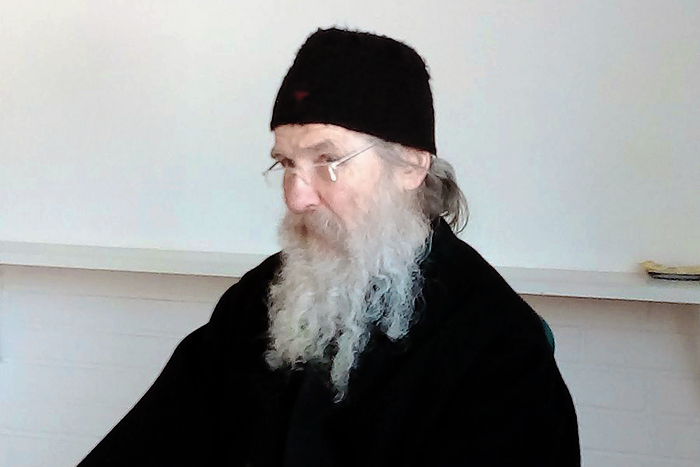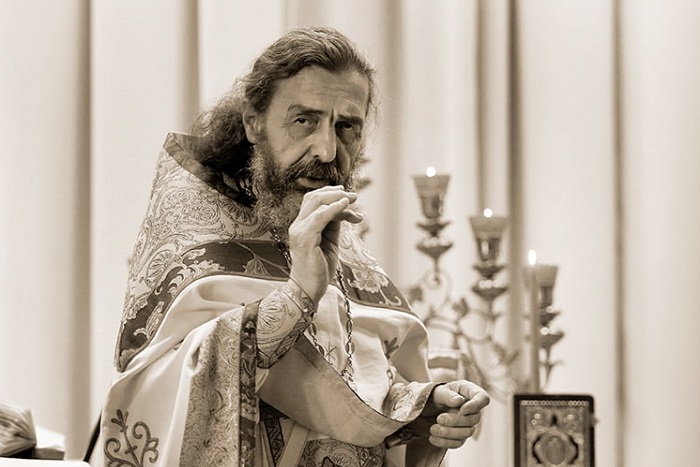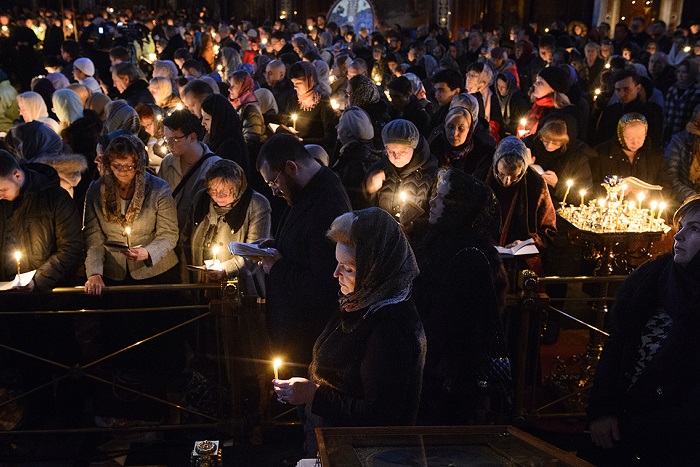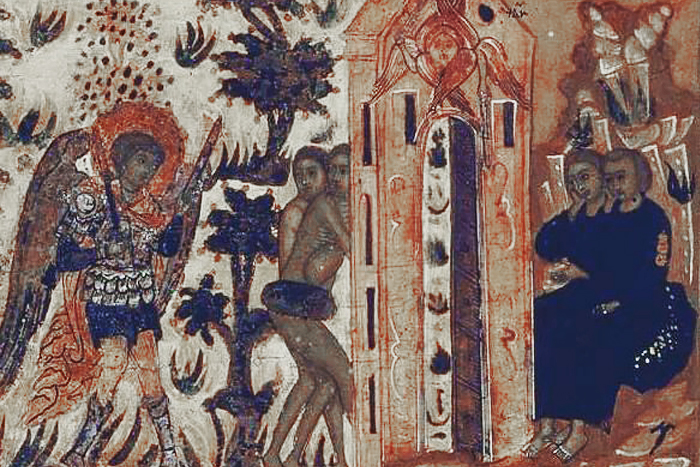A talk with the Finnish Doctor of Theology Hannu Pöyhönen
Hannu Pöyhönen, Ph.D in Theology, who spoke with St. Paisios the Hagiorite and has been organizing an Orthodox monastery in the Finnish town of Lammi, is speaking about his meetings with the venerable elder.
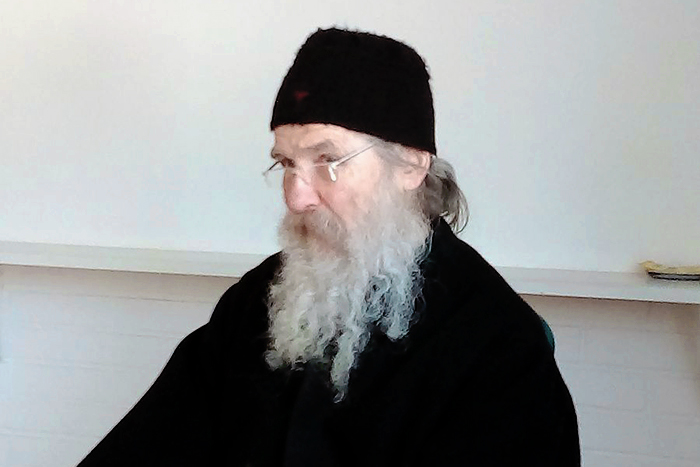
—Dr. Hannu, you mentioned that you were privileged to meet and converse with St. Paisios the Hagiorite.
—Yes, I did. It happened by the grace of God.
—What were the main subjects of your conversations?
—There were many of them, including very personal ones. But some subjects concerned all of us. For example, trials and tribulations and the ability of Christians not to panic and know that we are not alone—we are with God. I recall that once Fr. Paisios said, “Do you know what people do before a rocket is launched? They count down: ‘Ten, nine, eight, seven…, one, blast off!’ When they say ‘blast off’, the launch takes place. Likewise, if you have reached the ‘blast off point’, now you will fly up.” We have all reached the bottom in our lives, haven’t we? And we (our community) have tested this with our own example many times over these years: Help from God comes at the very moment when it seems that we have strained ourselves to the utmost and brought ourselves to exhaustion. Help comes in some miraculous way, and you realize that the energy expended was the very “stages” that you needed. And your task is …forgetting those things which are behind, and reaching forth unto those things which are before (Phil. 3:13), as the apostle said.
Overcoming the curse of Babel
—How did you meet Fr. Paisios?
—When I first arrived to Mt. Athos, literally “tormented by spiritual thirst”1, I asked everybody, who could I turn to for spiritual counsel? And they answered with one voice: “Go to Fr. Paisios.” Then, in 1988, this name was on everybody’s lips. Of course, I wanted to speak with the elder very much, but the ancient curse of Babel was revealed: I had very poor knowledge of Greek. True, I knew Ancient Greek well and read it, but the language of Homer, let alone English or my native Finnish, were no good for a full-fledged talk with the holy elder. What are you going to talk with a great ascetic about if you don’t know each other’s language? And I couldn’t bear going to the holy man and asking him very important questions with my poor Greek. In any case, then, during my first visit to Mt. Athos, I heard about St. Paisios.
So I learned modern Greek thoroughly and the following year travelled to Mt. Athos again.
An “election miracle”
I didn’t really hope to see the elder because it was Pentecost and I was sure that he was having hundreds of guests. As soon as I went up to his cell, it turned out that I was the only visitor! The parliamentary elections were held on that day and everybody had gone to the polling stations.
—At least some good comes from politics.
—Thus we talked with the elder for an hour in his cell. The elder, who was immersed in prayer, was counting his prayer beads and listening to me, while I was telling him about my life, asking for his advice. But there was no fuss, no hurry—it was a peaceful, quiet conversation. It was something that struck me at once—that blessed atmosphere of serenity and tranquility during my talk with Fr. Paisios.
These are the very moments of your life that, as you come to realize afterwards, are the true life. You live by that light and peace, and the memories of them help you remember Christ even amid fuss and difficulties. I would call this feeling, contact with blessed eternity. Having once experienced this sense of the Heavenly Fatherland, you will do your best in order not to lose it.
An “icon in a poke”
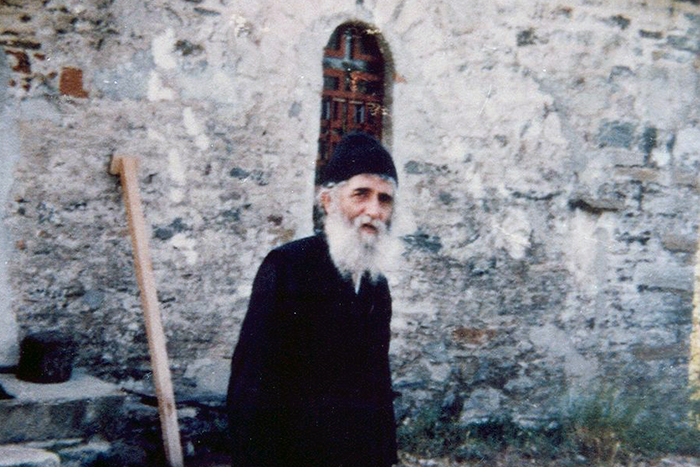
Furthermore, in the presence of such great men as St. Paisios, you find yourself.
—Could you please explain that?
—Every time I spoke with Fr. Paisios (and I came to him on several occasions), I saw his love and respect and understood that the elder truly saw the image of God in me and revered that image, that icon. And he always had the desire to help and serve me. I am not speaking of help in everyday things, like making coffee, offering a chair, holding the door open, or fetching a heavy rucksack—though there was all of that, too; I am speaking about the desire of a true Christian to do everything in his power to help his neighbor in his path to God. And Elder Paisios did have this power! The power of his love for his neighbor helped you be your own self without any theatricals and without deceiving yourself.
I will be frank: I have hardly ever seen as much love for one’s neighbor in anybody as in St. Paisios.
After our talk, while parting, Fr. Paisios came up to me with a huge plastic trash bag: “I have no umbrella. Please, take this bag, which will protect you from the rain.” “What rain, geronda? Why this bag? The sky is cloudless!” “It will come in very handy to you, I know it for certain.” We parted. Fifteen minutes later it started to rain—and I have never seen such a heavy rain again in my life. I reckon this is how the Deluge must have looked like. I am not sure about that, though. I made a hole for my face in the “raincoat” that the elder had given me and thus walked for an hour and a half to the monastery where I was to stay overnight. When I arrived, the people thought I was an extraterrestrial being—After a rainstorm I was dry, happy, and joyful! For me that “raincoat” from this amusing incident was an image of the prayerful and good intercessions of the saints for us, sinners. There may be storms and all kinds of calamities in our lives, but true prayer will always shield us from danger.
This is how I got to know the venerable Elder Paisios. We met many times afterwards. Though I tried to “spare” him because indeed thousands of people would flock to him and I hated to disturb the elder’s ministry. I would often come and ask for his blessing and prayers and we would talk for a minute or two. However, on several occasions, when circumstances allowed us, we talked for hours.
Finnish cries on Mt. Athos
One day my father-confessor admitted: “I am sorry but I am unable to help you with this problem. You’d better go to Fr. Paisios—I think he can help you.” At the time the elder was very ill. But once he had heard the beginning of my story, he forgot his illness and became all attention. And not just polite, courteous attention—he became fully immersed in prayer and became younger before my own eyes. It was clear that a most serious task was going on inside him—I would even say, his synergy with God—on my behalf. That was majestic and scary at the same time.
After praying, Fr. Paisios raised his eyes and said a few very simple words to me. But those words came from the bottom of his heart, from the personal experience of his struggle with sin; and, I must admit, like a bomb they blasted away the conglomeration of miseries and temptations with which I had come to the elder. After that I was running from his cell towards Iveron Monastery and yelling at the top of my voice: “Glory be to God! Glory be to God!” I hoped that no one would see me and think that I was crazy.
Salvific strictness
—Did the holy man always pat you on the back?
—No, he didn’t. Sometimes he could be strict. Not angry, of course, but strict. It was dictated by his love for people. It was necessary, for example, when strictness was the only way to save others from despair. One day, when my comrade and I were travelling back from Ouranoupolis to Thessaloniki, he told me the following story. His two sons had died in car accidents, a year apart. No words could describe his and his wife’s pain. His spouse fell seriously ill, he suffered a heart attack, and the couple was in despair. My companion went to Mt. Athos with his last strength to seek consolation from Elder Paisios. Hearing out the father’s grief, seeing the terrible state of his mind, the elder addressed him very strictly: “You are mourning for your sons, who are now with Christ. But you are grieving for the wrong reason: you are in trouble and not they. You must—I will repeat myself—you must find a spiritual father and live under his direction.” My companion said that he had not expected such words from the elder, who was always amiable and tender. “But where will I find a spiritual father, geronda?” “Go to Iveron Monastery, and you will meet him on your way.” He left and met Fr. Maximos, his future spiritual father, on a footpath. This pastor helped him and his family climb out of the chasm of despondency.
Fr. Paisios’s strictness was dictated exclusively by his love. Indeed the man needed support and he received it and at the same time realized that God takes care of him, of his spouse, and their reposed sons.
The “cold crags of Finland”2 and fervent Finnish prayers
—Now that Fr. Paisios is in Heaven, do you feel that you maintain your contact with him and that your “conversations” continue?
—I cannot call myself a worthy conversation partner, but I do rely on the venerable man’s prayers, support and love. And I am happy I have managed to translate and publish some books on Elder Paisios the Hagiorite, his letters and talks here in Finland. Of course, I continually turn to him in my prayers. I hope that discovering St. Paisios will help many of us to draw nearer to God.
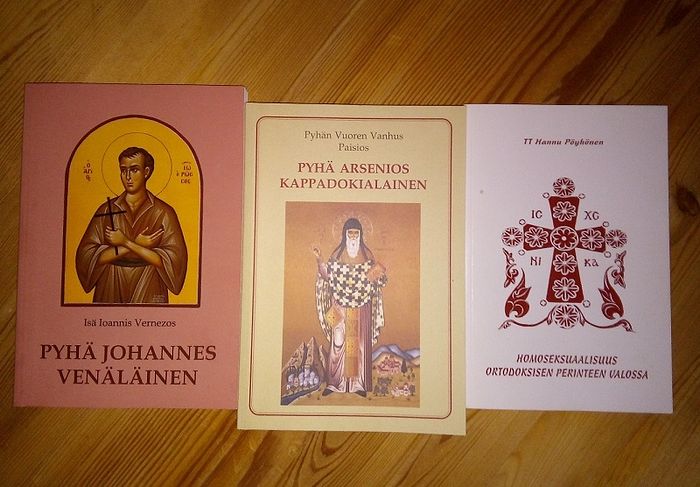
—And what do Finnish readers think about Elder Paisios? Do they find him somewhat strange and alien to them?
—Quite the contrary: glory be to God, Finns have come to love him very much. And many of them have converted to Orthodoxy. But it is just the very beginning; a lot of things are yet to be discovered.
—Why do you think they have grown very fond of him?
—There are a number of reasons. Firstly, he is our contemporary and he saw the life of modern society perfectly well. Secondly, Fr. Paisios never spoke in a way that is hard to understand—all of his words were simple, accessible, colorful and vivid. And, most importantly, they were honest and confirmed by his life. By the way, it can be called the “true bread” that modern people long for so much. Do you remember that we talked about “plastic spiritual bread” in our previous conversation? Fr. Paisios gave and still gives us this genuine bread. It is like a good children’s book—the ability to tell them about very important things in simple terms is needed here. The elder had this ability. And, thirdly, he had a very subtle and good sense of humor, which is a crucial quality in life, in my opinion; a kind joke can soften the heart. The saint’s smile helped people understand that God’s task is to give people freedom and not to cram them into a “box” or exhaust them with instructions and directions. Can someone who has been freed from evil refrain from smiling?
And we, while trying to arrange our monastic life here in Lammi, see our task as making the life and spiritual exploits of this holy man known to those who visit us. We are convinced that his life is a model for living with God in our time. Striving and being able to wholeheartedly serve others is very revolutionary in our modern world, which worships the idols of consumerism and comfort. Though Christianity itself is “revolutionary”.
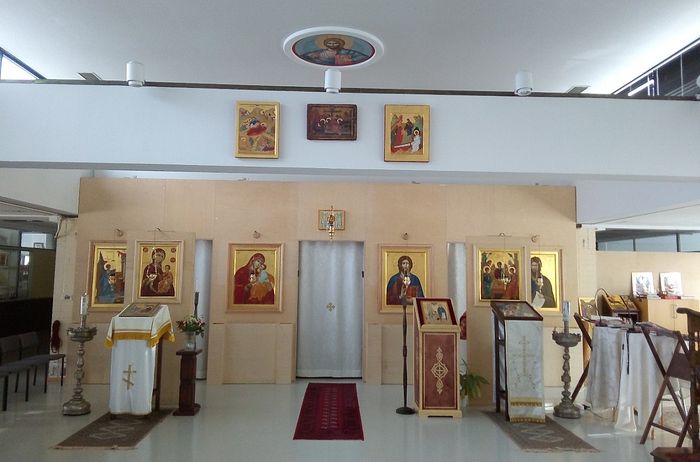
The elder used to say: “If you don’t serve your neighbors, you will never by happy—it will be fake joy. But when you devote yourself to your neighbors, you will see the joy that God gives you.” And our life confirms the correctness of his words every hour. Look around—you will see how many unhappy egoists are shouting about their joy! People suffer, take antidepressant drugs, go to “happiness courses” and do whatever they can to achieve it, but the result is always the same; their eyes are filled with pain, and their souls are withered. We must over and over again return to the basics of spiritual life. It is so easy to be happy—you just need to begin to love others.

A prayer for protection
—I am positive that pilgrimages to Holy Mount Athos are of great benefit to their participants.
—Not only of benefit. They also set new tasks before them. One of the main tasks of our brotherhood in Finland is to restore the devotion to the Most Holy Theotokos in this country.
—Why so? Do you mean that this veneration was discontinued?
—It was virtually abandoned. In Protestantism, especially modern Protestantism, the Mother of God is “respected” at best. There is no trace of the former veneration in contemporary non-religious society—the Church is alien to it. In my view, the abandonment of devotion to the Most Holy Theotokos is the cause of the destruction of families. Not only are modern people lonely—they are also isolated from Heaven. We have a good reason to call them “spiritual orphans”. That is why we named our community in honor of the Queen of Heaven—Panagia.
To Whom did people always turn in all their miseries? To the Most Pure Virgin. So we want to show people that although we are lonely and isolated from Heaven, we have an opportunity to break through this wall: we just need to remember that we all have a Fervent Intercessor, and that Her protecting veil is spread over all of us.
1 An obvious allusion to the beginning of the famous poem, The Prophet, by the great Russian poet and writer Alexander Pushkin: “Tormented by spiritual thirst, I dragged myself along in a gloomy wilderness”.—Trans.
2 An allusion to: “From the cold crags of Finland to flaming Colchis”—a line from the poem, To the Slanderers of Russia, by Alexander Pushkin, composed by him in 1831.—Trans.

